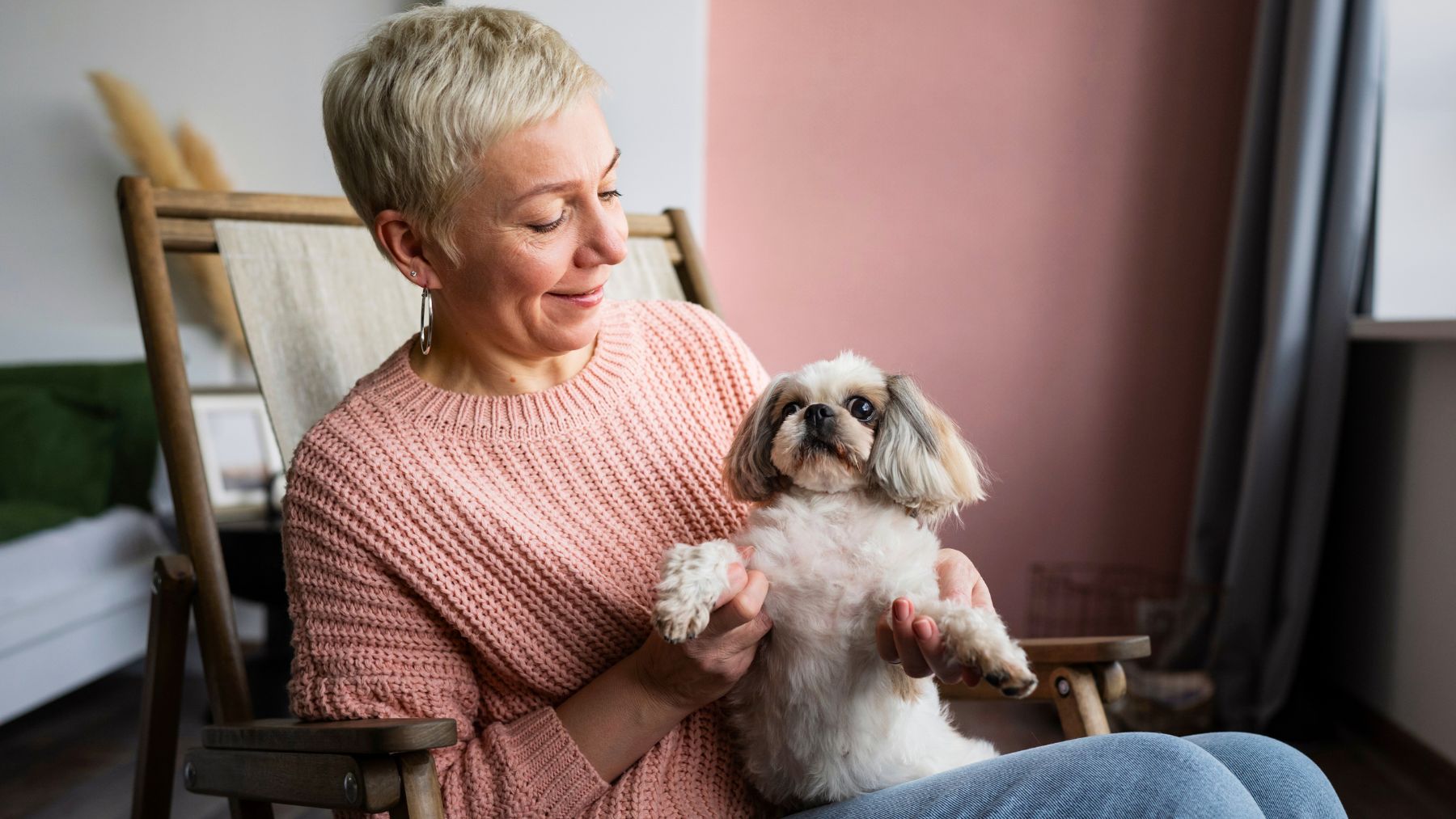There’s something that keeps seniors active and connected that may surprise you. Beyond the regular recommendations of joining a reading club or a dancing class, we want to talk about spending time with therapy dogs. This social activity gets you moving, stimulates your mind, and combats isolation in ways that other hobbies can’t.
Here, we’ll explore how dog therapy, a form of animal-assisted therapy that incorporates trained canines, emotional support animals, and pet-assisted interventions, works and examine its unique benefits for seniors. You’ll also discover practical tips to begin, even if you have never experienced such programs before.
How dog therapy helps fight isolation for people over 60
Dog therapy involves certified dogs visiting seniors in group settings such as community centers, assisted living facilities, or retirement residences. A handler leads the sessions to ensure safety, structure, and engaging interaction.
Unlike traditional pet ownership, you receive the emotional benefits and companionship without the daily responsibility of care. It suits seniors facing mobility challenges, health conditions such as Alzheimer’s disease, or those who prefer a low-commitment form of socializing.
The appeal lies in the dog’s natural presence and calm temperament. These animals break the ice effortlessly and encourage conversation. Group activities, including grooming or playing with them, foster teamwork, laughter, and mutual support. Such shared experiences can reduce loneliness by creating meaningful connections and lasting memories.
On a physical level, even gentle interactions with therapy dogs can bring significant benefits. Petting a dog lowers stress hormones and blood pressure, while light exercises such as walking or tossing a ball provide manageable physical activity.
Mentally, focusing on a canine companion sharpens attention and memory. For seniors with dementia, these interactions can spark moments of clarity and genuine joy. Emotionally, the unconditional affection offered by therapy animals reminds you that you’re appreciated and cared for.
How to get started with this social activity
Are you ready to take the first step in dog therapy? Here are some practical ways to begin:
- Find local programs: Search online for “senior dog therapy programs near me”. Many senior centers, retirement communities, and health organizations in the US offer free or affordable sessions.
- Verify credentials: Choose organizations that work with certified therapy dogs. Reputable groups rigorously test dogs for temperament, health, and training in pet-assisted intervention techniques.
- Assess your comfort level: Start with short group sessions. If you feel uneasy around canines, consider observing first or requesting a session with a calm, smaller breed known for its gentle nature.
- Ask about mobility accommodations: If walking is challenging for you, inquire if handlers can bring the dog to you for petting or suggest seated dog-related games to ensure comfortable participation.
- Invite a friend: Bringing a companion can lessen first-time jitters and amplify the social benefits of the experience.
- Check schedules: Aim for weekly sessions, as regular interaction helps strengthen bonds with the dogs and fellow participants.
Dog therapy accommodates nearly every level of health and mobility. With just a few sessions, you may notice improved mood, enhanced focus, and new social connections. It’s a practical, joyful approach to maintaining an active lifestyle and deepening your connection with animals.
